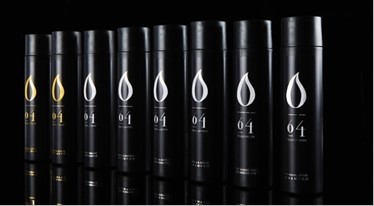Marketing to Gen Z? Stop and "look at their parents” said experts

In an online webinar about its latest report, the UK-based agency revealed that most brands are putting too much focus on younger generations when Gen X and Boomers are potentially a better option.
“What we want you to understand is that if you are obsessed with Gen Z like most brand advertisers and people on the internet right now, it might be more interesting to look at their parents Gen X,” shared Dan Hastings, Deputy Foresight Editor at The Future Laboratory.
“If you are obsessed with Alphas, it might be more interesting to have a look back at their grandparents: the Boomers,” he said.
The Future Laboratory stated that according to the UN, people over 65 are the fastest growing age group and this number is expected to surpass those aged 15 to 24 by 2050.
“Some of them will live way over the age of one hundred,” Hastings continued. “They are approaching later life with a new mindset. It's no longer the age, the time for them to age. It's the time of becoming it's their retirement era. It's a successful second act.”
He pointed out that as the number of people aged over 65 is expected to double over the next three decades, this comes with many challenges.
“First in terms of finding the resources to meet their needs,” he explained.
However, he also drew attention to the ‘consumer burden’ issue and pointed out how the younger generations have taken a negative view of the older generation – specifically Boomers – who they have perceived to have destroyed the planet, and that this attitude is “making the generational divide worse”.
Hastings referred a study the agency had undertaken, whereby 62% of Gen Z consumers quizzed gave a harsh judgement and said they had “no positive opinion about Boomers whatsoever.”
Spotlight on Generation X
Meanwhile, Generation X, those born between 1965 and 1980, were also given more airtime in the The Future Laboratory’s study. The agency said that this generation “currently make up 31% of the global population but are still seen as a forgotten generation.”
Hastings pointed out that they are “completely invisible in the media, in advertising, and really just overlooked.” He considered them to be a “forgotten generation” when it comes to marketers.
“Gen X are sandwiched between two cultural powerhouses: Boomers and Millennials and are really overlooked and undeserved by brands and advertisers,” he said.
He highlighted the agency’s research that showed that Gen X felt that they were ‘promoted at’ much less than Millennials and said that this is “quite surprising because Gen X have money, so they should not be overlooked.”
“According to the US Bureau of Labour statistics, Gen X have the highest average income rate of any generation and they are also the highest average annual expenditure, so perhaps they should not be overlooked anymore,” he continued.
Hastings also revealed that this generation is incredibly loyal to brands but doesn’t accept things at face value and are therefore quite sceptical. “What's interesting is that if you convince them and turn them into happy customers, then they are fiercely loyal. They won't go anywhere else,” he said.
Gen X consumers are ‘loyal linchpins’
Hastings pointed out that Gen X are often ‘dual carers’ and “the linchpin of their families because they take care of both their parents and their children at the same time.”
“So, if you're a brand trying to target Gen X, you really will have to take these points into consideration,” he advised. “For instance, when it comes to travel, for a Gen X consumer that often means family: including children, parents, even grandchildren, because they fulfil this ‘linchpin’ role.”
He also highlighted that they are “completely changing the meaning of what is what being middle-aged means.”
Indeed, there are some new brands launching that are aimed at Generation X consumers and the changes they are facing in life. One example is the disruptive UK-based skin care brand Made of More that gives a new spin on skin care for menopausal women.
There is certainly an upward trajectory of innovation in areas that may target older consumers, such as menopause-beauty, hair loss, longevity and other previously neglected sub-categories that were often glossed over or ignored.
An emphasis on the neglected Gen X consumer was a sentiment echoed by co-founder of London-based creative agency Free the Birds, Nick Vaus, too.
Vaus, who works with many beauty brands, pointed out that many ‘heritage’ brands are rushing off to please the Gen Z market when in fact they would be better off maintaining the connection with the people who originally brought them success. Often Gen X or Boomers.
“Too many brands today are too quick to rush change that is aimed at appealing to a younger audience, but the Gen Z effect can be a dangerous one,” he shared.
“Prestige brands such as these should perhaps then lean into the growing spending power of Gen Xers, whose disposable income is higher than their younger counterparts,” he continued. “Household names such as Estée Lauder and MAC will speak to the Gen X consumer, who are facing significant changes in their lives and therefore seek reliability in their products.”
He also pointed out that from a creative point of view: “a brand which is incapable of defining itself will see sales decline,” and that “a clear brand identity is vital.”
Vaus advised that they start by examining brand loyalists and understanding what resonates with them and what keeps them returning.
“Brands must ensure that they continue to champion their heritage that built them into a household name,” he advised. “Often this heritage is the key to communicating the core values and benefits that first put them on the map. This should not be abandoned.”






















